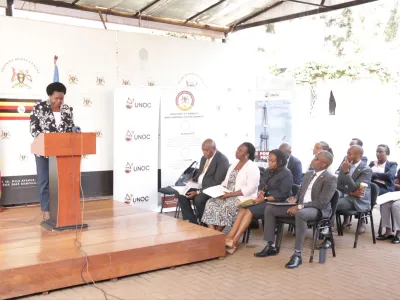
The High Court has affirmed that oral agreements hold the same legal weight and enforceability as written contracts, provided they fulfill the essential requirements of a valid contract.
This judgment arose from a legal dispute involving two Indian nationals, Mohanpal Singh Bharj and Hitesh Mahendra Mehta, concerning a loan amounting to 270 million Shillings. Presiding over the matter, Justice Patience Rubagumya held that a contract does not need to be in writing to be enforceable, as long as all key contractual elements are present.
“For a contract to be valid and legally enforceable, there must be capacity to contract, intention to contract, consensus ad idem (a meeting of the minds), valuable consideration, legality of purpose, and sufficient certainty of terms,” Justice Rubagumya observed.
The litigation was initiated by Mohanpal, who asserted that he had extended a friendly loan of 270 million Shillings to Hitesh, which remained unpaid. He acknowledged that no written documentation existed but claimed the loan was given in good faith.
In response, Hitesh denied that the funds constituted a loan. He contended that the 270 million Shillings represented partial payment for his services as Mohanpal’s tax agent. According to Hitesh, the agreed compensation for his professional work was 550 million Shillings, out of which 270 million had already been disbursed. He further argued that the law restricts the enforceability of oral loan agreements exceeding 25 currency points (500,000 Shillings), asserting instead that Mohanpal was indebted to him for an outstanding balance of 280 million Shillings in unpaid service fees.
Mohanpal, however, insisted that he had already remitted USD 9,440 as payment for tax-related services, and that the 270 million Shillings transferred to Hitesh was strictly a loan.
In her decision, Justice Rubagumya found that an oral contract exceeding the statutory 25 currency points can still be enforceable if it meets all the criteria of a valid contract and has been partly executed.
“It is undisputed that the plaintiff transferred the sum of 270 million Shillings to the defendant. Whatever agreement the parties entered into cannot be invalidated merely because it was not reduced into writing,” she ruled.
She further noted that during cross-examination, Hitesh conceded that the funds had been deposited into his personal bank account, as opposed to the business account typically used for receiving professional fees. He also admitted that the money was channeled to his personal account to avoid taxation—a statement the judge found incompatible with his position that the amount was for professional services.
On evaluating the evidence, Justice Rubagumya concluded that, on a balance of probabilities, the 270 million Shillings had been issued as a loan. Consequently, she directed Hitesh to repay the sum, with interest at an annual rate of 10 per cent until full settlement is achieved.
Additionally, the court awarded general damages of 20 million Shillings, to accrue interest at a rate of 6 per cent per annum, and ordered Hitesh to bear the legal costs of the suit.
Source: URN













Sunrise reporter
Leave a Comment
Your email address will not be published.